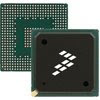Tech-no-media is an opinion Blog on technology, open sources and digital media. You will see below a sample of some of my best posts. If you like what you see and would like to read more feel free to subscribe to Tech-no-Media (rss) or to Follow me on Twitter.
 Microsoft reminds us that Windows is f*cking expensive
Microsoft reminds us that Windows is f*cking expensive
Microsoft has finally released the pricing structure for Windows 7. The good news is that the new version of Windows will be a bit cheaper than the equivalent version of Windows Vista. The bad news is that since I am now used to receiving Ubuntu for free this made me realize that a Windows 7 license is in fact f*cking expensive!
Image cc by impressa.maccabe
 Linux Netbooks: back to the facts
Linux Netbooks: back to the facts
There has been a lot of talk about the success or failure of the Linux netbooks recently, to the point that it is now a very controversial topic. I think that it is time to go back to the facts and perform an objective analysis of the Linux netbook market. You will see that Linux netbooks have been neither a complete success nor a complete failure.
Picture cc by magicfab
 Taking Gloria out for a spin: A review of Linux Mint 7.0
Taking Gloria out for a spin: A review of Linux Mint 7.0
There is a soft spot in my heart for Linux Mint: Mint 3.0 was the first Linux distribution that I really used rather than experimented with. Since then I have moved on to Ubuntu (on which Mint is based), but the release of the new Linux Mint 7.0 codenamed Gloria made me want to install and review Linux Mint again. I brought my old Dell latitude D400, a 5 year old subnotebook, out of storage and started the Mint live CD.
MS vs EU: Microsoft does not control Windows anymore
I was quite surprised when I learned that some peoples at JCXP wanted to boycott the opera browser because of the EU actions against Microsoft regarding the bundling of IE 8. The problem is that their main argument would be valid in the US, but absolutely not in the EU. Here is the point that I have a problem with:
"Microsoft is entirely within their right to include Internet Explorer as the default browser within their own OS, just like Apple includes their own Safari as the default browser in Mac OS X, and just like Opera Software would be free to include Opera as the default browser in their own OS, should they ever make one."
An interview with Clem from Linux Mint
A few days ago I reviewed what is in my opinion the easiest Linux distribution for Windows switchers: Linux Mint 7.0 The small group of talented people that manage this distribution is led by Clem, the "founder" of Linux Mint. Today he was kind enough to grant me an email interview as a follow up to my review.
Erlik: How did you get started on Linux Mint?
Clem: I've been passionate about Linux since the early days. I started using it as my main operating system in 1996. In the following years I did a lot of distro-hopping and I spent a lot of time helping other users. In 2006 I started selling reviews and...
 Why Android smartbooks will eventually be free
Why Android smartbooks will eventually be free
We have seen a lot of action at Computex around the Snapdragon based android eeepc and all the shenanigans around it. I think however that this is an operation by netbook manufacturers to make Microsoft realize what we already know: that they should give Windows 7 starter away for free. Given the number of manufacturers preparing Android and Snapdragon Based devices Asus can't afford to miss the boat. I also think that the new Android smartbooks will not only be cheap, but that eventually they will be free and I'll explain why below. image cc by nDevilTV
How to choose the best netbook computer?
Choosing the best netbook computer based on your intended usage is very different from choosing the best notebook computer. In the notebook world there are many screen sizes, price points and processor speeds. If judged by notebook standards all netbooks look the same: same 9 to 10 inch screen, same 1.6 GHz Atom processors, same $300 to $500 price point.
computer based on your intended usage is very different from choosing the best notebook computer. In the notebook world there are many screen sizes, price points and processor speeds. If judged by notebook standards all netbooks look the same: same 9 to 10 inch screen, same 1.6 GHz Atom processors, same $300 to $500 price point.
The netbook processor wars: Atom x86 versus snapdragon ARM 
War is brewing in Netbook processor land. The current king of the hill is the Intel Atom CPU based on the x86 instruction set, the same instruction set that is used in "full size" laptops and desktops. The only contender that Intel faced in the Netbook space up to now was the VIA Nano , which didn't have much success up to now. The Nano is somewhat more powerful than the Atom, but it also consume more power, a major problem in a market where battery life is more critical than processing power.
, which didn't have much success up to now. The Nano is somewhat more powerful than the Atom, but it also consume more power, a major problem in a market where battery life is more critical than processing power.
For more posts like this subscribe to Tech-no-Media (rss) or Follow me on Twitter.





































